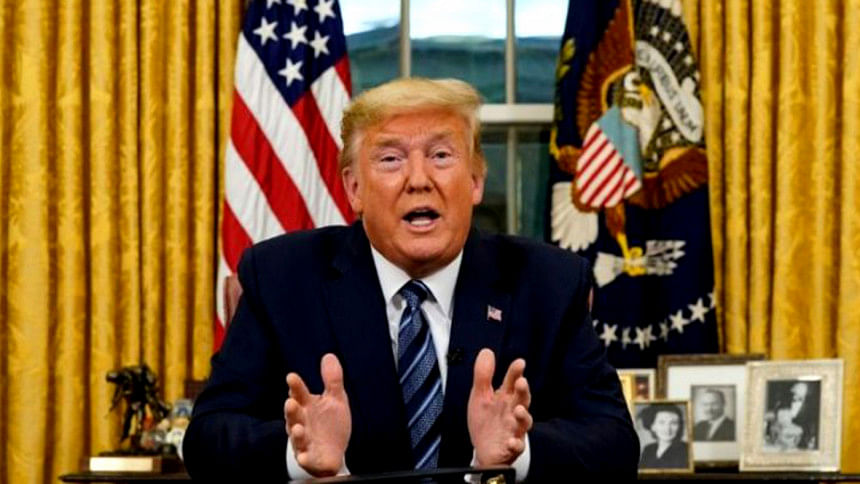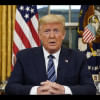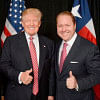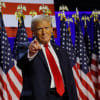Coronavirus: Trump decides against quarantine of New York region

US President Donald Trump decided late Saturday against imposing a broad two-week lockdown on New York and its neighbors after a strong pushback from local political leaders and warnings of the panic it could spark.
The Centers for Disease Control and Prevention (CDC), however, late Saturday advised residents of the region not to travel except for essential purposes.
"A quarantine will not be necessary," Trump tweeted, about eight hours after he stunned the New York metropolitan region, the epicenter of the US coronavirus outbreak, with a proposal to place it under quarantine to prevent residents from leaving.
A lockdown of that type would have been the harshest measure yet taken by the US government to slow the spread of the disease.
Trump had indicated earlier that he was responding to worries in other states, particularly Florida, that travelers from the greater New York City area could spread COVID-19 in their communities.
He told reporters that "heavily infected" New Yorkers were a threat to Florida, a popular southern holiday destination for people in the northeast.
But after strong warnings from New York Governor Andrew Cuomo and New Jersey Governor Ned Lamont that the move would spark panic and cause further damage to financial markets, Trump reversed course and said there would only be travel warnings for the region.
"On the recommendation of the White House CoronaVirus Task Force, and upon consultation with the Governors of New York, New Jersey and Connecticut, I have asked the (US Centers for Disease Control and Prevention) to issue a strong Travel Advisory," he said on Twitter.
The CDC then published its advisory which urged residents of the three neighboring states "to refrain from non-essential domestic travel for 14 days effective immediately."
- US epicenter -
New York state has reported in excess of 53,000 cases of the new coronavirus, out of more than 124,000 nationwide.
New York City alone reported a surge of more than 155 deaths Saturday, taking the city's total to 672, about one-third of the 2,185 fatalities across the United States, according to data from Johns Hopkins University.
Neighboring New Jersey has reported more than 11,100 COVID-19 cases.
Cuomo told CNN earlier that a lockdown on travel in and out of the global financial and trade hub would not be legal or make sense -- especially since there are already local controls on movements.
"Why you would want to just create total pandemonium on top of a pandemic, I have no idea," he said.
Lamont called New York City, New Jersey and southern Connecticut "the global capital of the world" for commerce and finance.
"If you care as much as the president does about getting this economy going again, you've got to be very careful about what you say and what you don't say," he said.
- 'Don't come here' -
Yet Trump appeared to be echoing concerns in other states that visiting New Yorkers could exacerbate the spread of coronavirus.
In Rhode Island, about 130 miles (210 kilometers) northeast of New York City, police and national guard members were knocking on doors of homes where cars had New York license plates to remind them of a requirement to self-quarantine.
Florida has a large population of retirees, but has so far only reported slightly more than 4,000 new-coronavirus cases.
Florida Governor Ron DeSantis, a political ally of Trump, issued executive orders this week mandating two-week self-quarantines for anyone arriving or recently arrived from New York and Louisiana, another US hotbed of the disease.
He said police will put up checkpoints along the state line to remind people of the requirement.
"All we are trying to do is keep our residents here safe. If you are coming from one of the epicenters... don't come here because we are trying to protect our folks," he said.

 For all latest news, follow The Daily Star's Google News channel.
For all latest news, follow The Daily Star's Google News channel. 








Comments